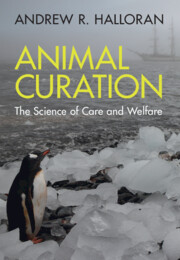Book contents
6 - Compensation in an Artificial Environment
from Part II - External Factors
Published online by Cambridge University Press: 20 November 2025
Summary
There are strategies and methodologies employed to enhance animal welfare in environments that are inherently non-natural. This chapter provides a comprehensive analysis of how artificial settings can be adapted to meet the physiological and psychological needs of animals. It discusses the various aspects of artificial environments, such as the limitations imposed by space and the lack of natural stimuli, and how these can be compensated for through innovative design and management practices. Key topics covered include the design of artificial habitats that mimic natural settings, the importance of providing adequate physical movement, cognitive stimulation, and social interactions within these confines. The chapter also addresses the challenges of creating a stimulating environment that can offer animals a semblance of their natural habitat, focusing on the balance between safety, welfare, and the practical limitations of artificial environments. Overall, the chapter emphasises the necessity of thoughtful and scientifically informed approaches to animal care in artificial settings, aiming to provide animals with opportunities to exhibit natural behaviours and lead fulfilling lives despite the constraints of captivity.
Keywords
Information
- Type
- Chapter
- Information
- Animal CurationThe Science of Care and Welfare, pp. 122 - 152Publisher: Cambridge University PressPrint publication year: 2025
